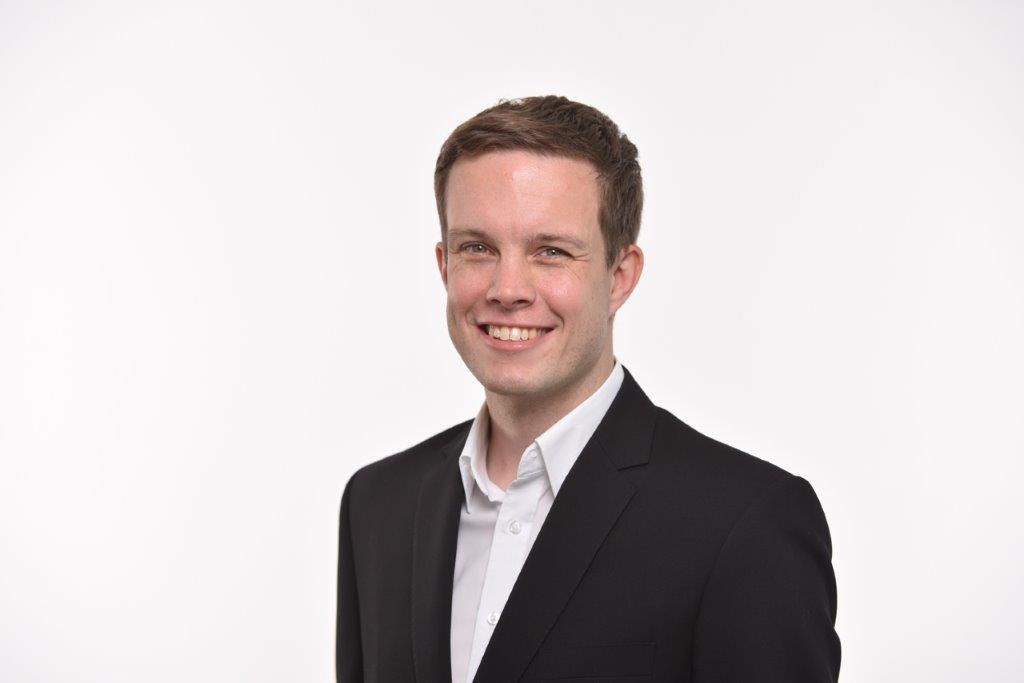What does the path after graduation actually look like? Thim Strothmann, a graduate of Paderborn University, studied computer science, then completed his doctorate and now works as project & competence centre manager at Adesso Mobile Solutions in Paderborn. In this interview, he provides exciting insights into his career, challenges and tips for students.
From enthusiasm for computer science to studying
Thim knew early on that he wanted to do something in the STEM field; in addition to his enthusiasm for programming while he was still at school, computer science offered him a clear career perspective. He was particularly fascinated by the possibility of ‘teaching the machine what to do’. However, during his studies he realised that not everything suited him equally: ‘I lost my enthusiasm for programming, but I always found algorithmic thinking exciting.’
He completed his entire degree programme at Paderborn University - from bachelor's degree to doctorate. He combined computer science with economics as a minor subject, deepened his knowledge even further in the master's programme and then finally completed his doctorate in computer science at Paderborn University.
The challenges of studying and the path to a doctorate
But the path was not always easy. He failed two exams in his very first semester: ‘That was a moment when I really doubted my studies.’ The reason: ‘I came from school with the mentality that I would look at things once and then just be able to do them - that didn't work during my studies.’ But instead of giving up, he changed his learning strategy and found his way.
After his bachelor's degree, he didn't know exactly what he wanted to do professionally - so he decided to do a master's degree. In the meantime, he worked as a student assistant and gained practical experience. His doctorate was also a mixture of interest and the desire to try things out further: ‘I had a topic that I was passionate about and a supervisor with whom I got on well.’ During his doctorate, he became involved in the Senate and Faculty Council and undertook further training in project management - a decision that would influence his later career.
First professional experience and switch to industry
After completing his doctorate, he started as a project manager for research transfer projects at the Software Innovation Campus Paderborn (SICP). However, he quickly realised that he lacked greater challenges in project management. He switched to the automotive industry at BHTC in Lippstadt, where he worked as a project manager and later team leader.
‘It was an exciting, but also very strenuous time,’ he recalls. The constantly high workload led him to reconsider his professional situation: ‘I realised that I couldn't carry on like that and didn't want to.’ Which is why he then moved to Adesso Mobile Solutions in Paderborn.
The day-to-day work of a competence centre manager
Today, Thim works as project & competence centre manager and leads a team of around 15 people. ‘I started out as a team leader without a team,’ he says with a laugh. He is now responsible for several projects and is also involved in the strategic development of the company.
His department specialises in app development for clients from the public sector. One of the current projects is the new development of the ‘Safe Travel’ app for the German Federal Foreign Office - an app that informs travellers about the security situation in their destination countries. ‘The idea is good, but the old app wasn't user-friendly - we're improving that now.’
His day-to-day work is characterised by variety: ‘Project management can be planned, but not everything around it. Sometimes I don't have any interviews for weeks, sometimes three in one week. Sometimes there are hardly any new projects, sometimes there are three acquisition processes running at the same time.’ It is precisely this dynamic that makes the job so appealing to him.
Three tips for students
focus on your strengths: ‘Do what you're good at and what you enjoy - not what's “trendy” at the moment.’
also use your studies for personal development: ‘You often learn soft skills such as communication and teamwork outside of lectures - take advantage of university sports, committees or part-time jobs!’
be open to new paths: ‘Career paths are rarely straightforward - try out different things and find out what suits you.’
Studying as an opportunity for self-discovery
For Thim, his time at Paderborn University was one of the best of his life: ‘You can try out so many things, meet new people and develop yourself further.’ His experiences show that the path after graduation cannot always be planned - but with curiosity, openness and the right attitude, exciting and fulfilling careers can be created.

